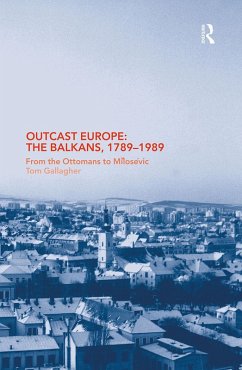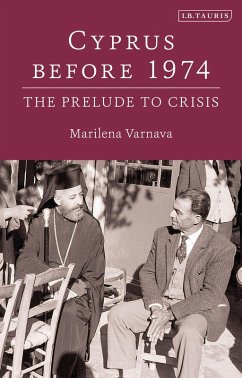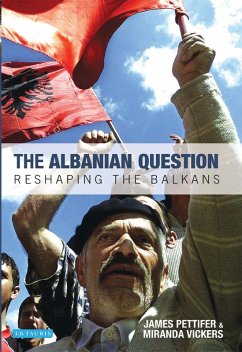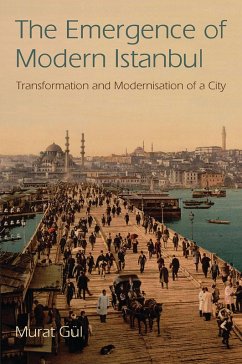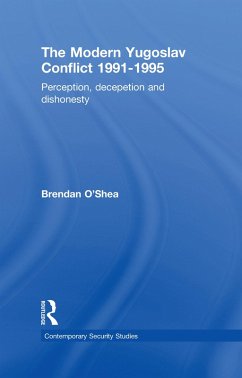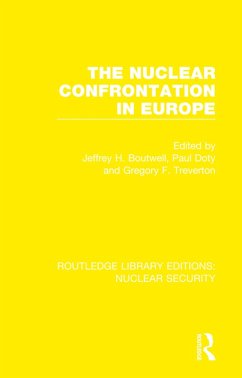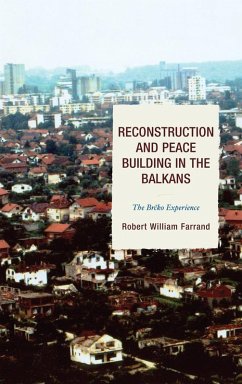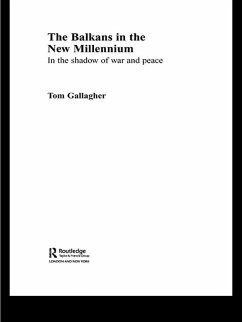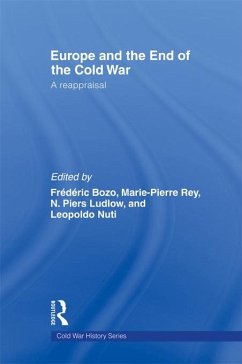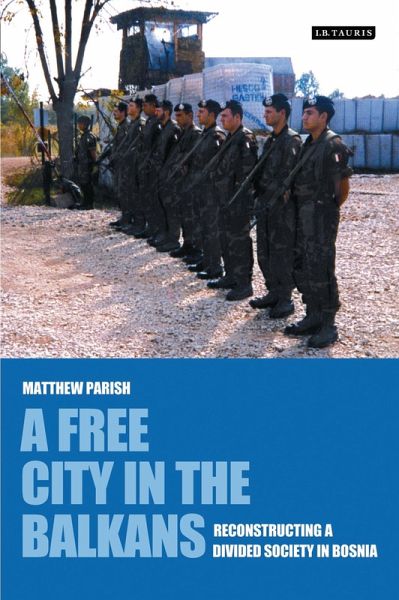
A Free City in the Balkans (eBook, PDF)
Reconstructing a Divided Society in Bosnia

PAYBACK Punkte
43 °P sammeln!
Following the brutal wars which raged in the former Yugoslavia in the early 1990s, Bosnia and Herzegovina was awkwardly partitioned into two governing entities: the Federation of Bosnia and Herzegovina and Republika Srpska. But there was one part of the country which could not be fitted into either category: the Brcko District, a strategically critical land-bridge between the two parts of the Bosnian Serb territory. This region was the subject of a highly unusual experiment: placed under a regime of internationally supervised government, Brcko became a 'free city', evoking the memory of Triest...
Following the brutal wars which raged in the former Yugoslavia in the early 1990s, Bosnia and Herzegovina was awkwardly partitioned into two governing entities: the Federation of Bosnia and Herzegovina and Republika Srpska. But there was one part of the country which could not be fitted into either category: the Brcko District, a strategically critical land-bridge between the two parts of the Bosnian Serb territory. This region was the subject of a highly unusual experiment: placed under a regime of internationally supervised government, Brcko became a 'free city', evoking the memory of Trieste or Danzig over fifty years ago. What has this experiment in state-building revealed about the history of this troubled corner of the Balkans - and its future? What lessons can be applied to conflict resolution in other parts of the world? And was the experiment successful or have the citizens of Brcko suffered further at the hands of the international community? "A Free City in the Balkans" investigates the rise and fall of Brcko and post-war Bosnia and investigates what lessons can be learned for international peacekeeping missions elsewhere.




